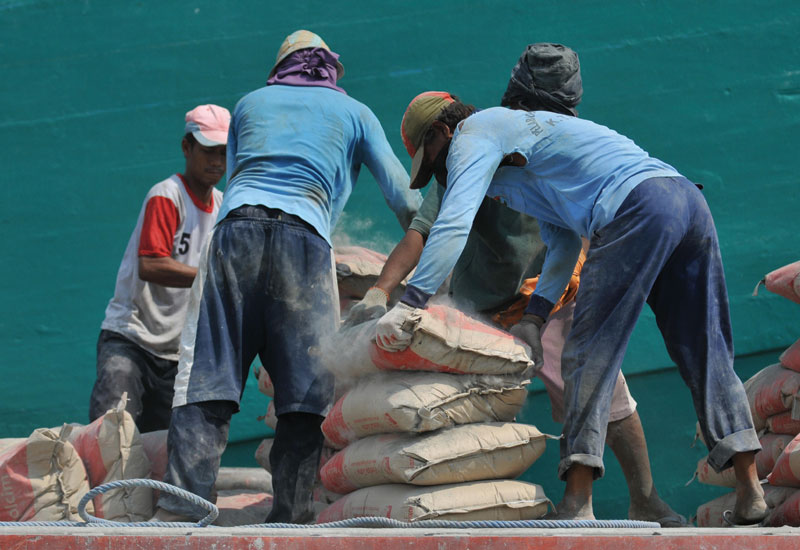
(AFP File Photo)
Egyptian Natural Gas Holding Company (EGAS) reduced gas supplies to cement factories by 50%, which resulted in a slump in cement production by the same percentage, according to Executive Vice President of Titan Cement Company Mostafa Stephanos.
Stephanos noted that this reduction, which started in January, exceeded last year’s cut in gas supply, which averaged at 20%.
Last October, cement factories had reduced distribution and cut production by 24% on the back of low and intermittent natural gas supply. Stephanos had said at the time that they would be forced to raise prices or import the necessary supply to cover their needs.
EGAS decreased gas distribution to cement factories by 150 million cubic feet per day due to a shortage in natural gas production in Egypt, Al-Borsa newspaper reported on Sunday, quoting an unnamed official in EGAS.
According to the official, cement factories require 410 million cubic feet on a daily basis in order to operate normally.
But there are possible solutions. Minister of Petroleum Sherif Ismail has allowed for the possibility of importing natural gas from abroad, according Hossam Arafat chairman of the division of petroleum products at the Federation of Egyptian Industries.
Arafat added that this option would help fill the supply deficit left by the shortfall in local production.
While this may force factories to raise product prices, Arafat stressed that energy supplies amount to “only 15% of [cement companies’] total costs”, rendering such an increase unlikely.
“Producers should continue operating their factories instead of halting their production anyway,” Arafat added.
Earlier in September, the government issued a decision requiring energy-intensive factories to meet a portion of their needs using solar and wind power. This decision came during a meeting held by the High Energy Committee attended by Prime Minister Hazem El-Beblawi.
Meanwhile, natural gas delivery to homes in December reached its highest level in 30 years, the Ministry of Petroleum said earlier in January.
Chairman of EGAS Taher Abdel Reheem attributed this hike to the increased accessibility of funds needed for implementing the plan to deliver natural gas to 800,000 homes in the current fiscal year.
The Ministry of Finance allocated in December EGP 225m to the petroleum ministry in order to continue delivering natural gas to homes.
As of the end of December, the total number of residential units connected to natural gas system had reached 5.8 million.



